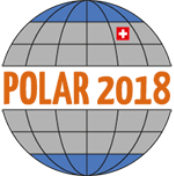The primary aim of the Antarctic Legacy of South Africa project is to preserve the human history of South Africa’s presence and activities in Antarctica and the sub-Antarctic over the last 70 years. To help create awareness of its work it has been developing an international presence by attending and presenting at meetings around the globe.
Last year ALSA was at three international meetings in Norway, Malaysia and the UK:
- Scientific Committee on Antarctic Research (SCAR) Open Science Conference 2016, Kuala Lumpur, Malaysia in August
- Historical Antarctic Sealing Industry Conference, Cambridge, UK in September
- Inaugural Conference of the Polar Museum Network, Oslo, Norway in October
In July this year in Hobart, Australia the ALSA team will make several presentations at SCAR’s combined Antarctic Humanities & Social Sciences (HASSEG) and History Expert Group’s Biennial Conference 2017 with the theme “Depths and Surfaces: Understanding the Antarctic Region through the Humanities and Social Sciences” (click here).
Next year, ALSA’s John Cooper will co-convene a session at POLAR 2018 – the SCAR/IASC Open Science Conference with the overall theme ‘Where the Poles Come Together” to be held in Davos, Switzerland in June. The session, to be co-convened with colleagues from Canada, Germany, Italy and the USA, is entitled “The role of museums in promoting polar heritage and advancing polar science”
The session’s description follows
“Museums have a long history of exploring and documenting polar biological and geological diversity and human history, and they play an important role in sharing polar knowledge and heritage with the public. Collections housed in museums and other institutions hold the record of life on the planet, including millions of specimens from the Arctic and Antarctica, yet museums have been largely on the periphery of polar science. The need for permanent specimen and tissue repositories, and a global inventory of these repositories, is a priority, given the value of these collections to polar science. There is great value and interest in the stories of people who live and work in Polar Regions, and museums are able to share this human history in compelling ways. Museums also communicate polar research and exploration to the public, and provide digital access to their specimens. This session focuses on all aspects of polar research, collections and engagement at museum and related institutions, including museum-led polar research, knowledge gaps in the polar collection record, progress in digitizing polar collections, documentation and conservation strategies of polar collections, museum outreach and engagement related to polar issues, and discussion of ways museums can better work together and with the broader research community in a 21st century global context to advance polar research and collections, and engage, inspire and educate citizens about polar regions and issues.”
The call for abstracts for this and all other sessions will open on 1 September 2017. Click here for the conference programme.
John Cooper, Antarctic Legacy of South Africa, Department of Botany and Zoology, Stellenbosch University, 24 April 2017

